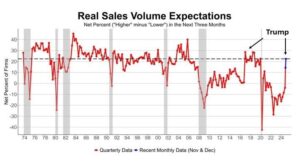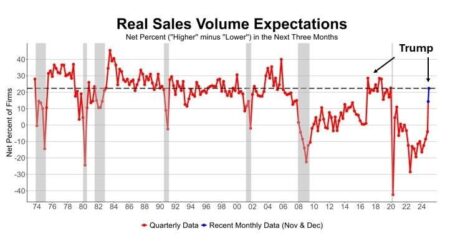Dr. Jeff Wessler (MD MPhil FACC) is a virtual cardiologist, the Founder of Heartbeat Health, and on clinical faculty at Northwell Health.
The year 2025 looms large for healthcare—a field accustomed to bold promises and slow progress. The pandemic hurled us into a brave new digital world, but the dust is settling, and the hype is giving way to hard truths. If the past few years were about disruption, 2025 will be about recalibration. It’s time to figure out what works, what doesn’t and what needs a second opinion. Let’s look at my prognosis for the year ahead.
Prediction 1: Value-Based Care Gets Real
Value-based care has been a healthcare buzzword longer than some buzzwords have been alive. But by 2025, I think we’ll see a shift from theory to action—not sweeping reform, but focused interventions proving their worth. Think pilot programs that actually reduce readmissions or population health tools that manage chronic conditions without managing to frustrate everyone involved.
This is where the rubber meets the road and the cost savings meet the care improvements. The future isn’t about big ideas; it’s about small victories. It’s less about “value-based care” and more about “value-tested care.”
Prediction 2: AI And Personalization Take Center Stage
Artificial intelligence (AI) is no longer science fiction, but it’s not quite science fact either. In 2025, I believe AI will settle into its sweet spot: making healthcare smarter, faster and more efficient. From triaging patients to flagging abnormalities in scans, AI is poised to become the assistant clinicians didn’t know they needed.
But let’s be clear—AI isn’t about replacing the human touch; it’s about giving humans time to touch more lives. The future of care isn’t robotic; it’s simply more efficient, with fewer “please hold” moments and more “I see you” moments.
Prediction 3: Patient Data As A Key Currency
If data is the new oil, healthcare is drilling up a storm. In 2025, the focus will likely shift from collecting data to refining it. Wearables, apps and remote devices will continue to churn out metrics, but the real winners will make sense of the chaos—turning steps, heart rates and blood pressures into insights that matter.
The challenge? Ensuring that patient data works for patients, not against them. We need systems that prioritize simplicity over spectacle—because no one needs more dashboards, just more answers.
Prediction 4: New Telehealth Regulations Reshape Access
Telehealth has come a long way from its pandemic trial run, but in 2025, the rules could finally catch up. Standardized reimbursement and practice rules and requirements could expand access, particularly in rural areas where “seeing a specialist” often involves a plane ticket.
But new regulations could also create hurdles. Compliance will separate the serious players from the hobbyists. For entrepreneurs, it’s time to trade speed for staying power. As telehealth becomes a fixture, the goal isn’t to disrupt; it’s to deliver.
Prediction 5: Cardiovascular Care Bundles With Metabolic, Kidney And Sleep Health
Healthcare loves a good bundle, and 2025 could see a rise in bundled care that reflects how the body actually works—as a system, not a series of isolated organs. I expect to see cardiovascular care increasingly integrate with metabolic, kidney and sleep health, tackling interconnected conditions under one umbrella.
This approach isn’t just logical; it’s long overdue. For entrepreneurs, the challenge will be creating solutions that connect the dots without tying providers into knots. The goal? Care that’s as seamless as it is comprehensive.
Conclusion: Preparing For 2025 And Beyond
The road to 2025 isn’t paved with silver bullets or moonshots. It’s paved with incremental improvements, real-world applications and a commitment to what actually works. Value-based care will trade vision statements for validated outcomes. AI will make care smarter without making it colder. Data will move from overload to insight. Telehealth will become a staple, not a stopgap. And care will finally reflect the interconnected realities of human health.
For healthcare entrepreneurs, 2025 is the year to think smaller, move slower and aim higher. The future of healthcare isn’t about winning the race; it’s about staying in it for the long haul.
Forbes Business Council is the foremost growth and networking organization for business owners and leaders. Do I qualify?
Read the full article here











